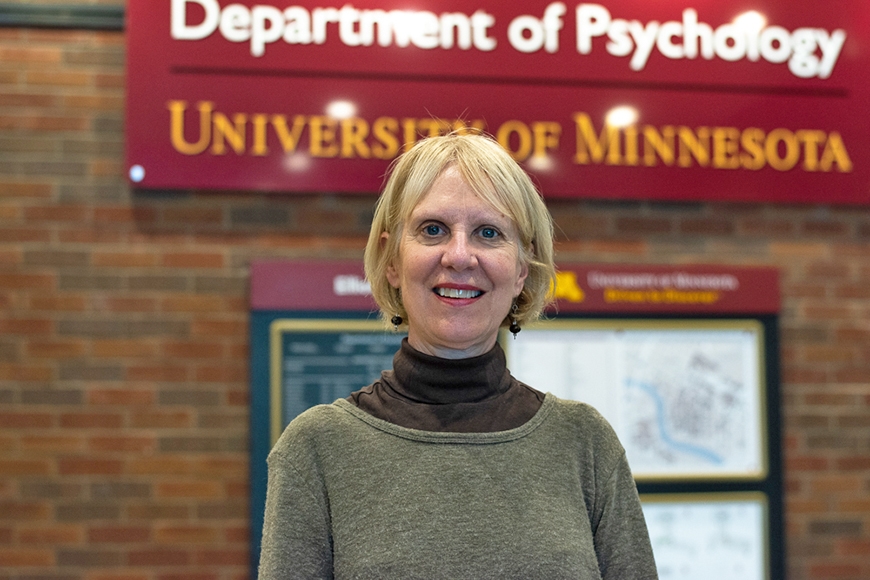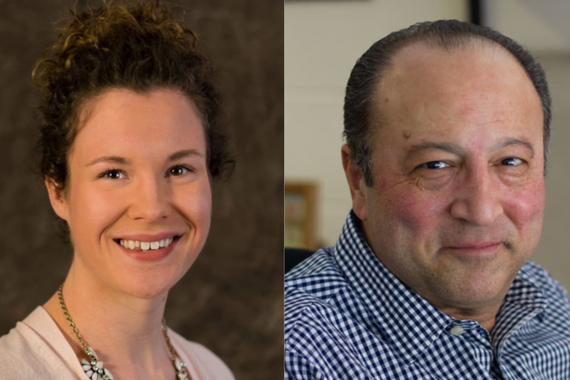What Can You Control?: Mental Health Modules Help Student Stress
As Joan Gabel begins her role as president of the University of Minnesota, she has made it clear she is focused on the wellbeing of students in the University system. In a July 2019 interview with Minnesota Public Radio News, Gabel spoke about specifically bringing attention to student mental health.
"Often well over 40 percent of our students arrive on campus with a mental health diagnosis,” Gabel says. She wants the University to go beyond “just care for the diagnosis as it may be.” She is interested in “developing a climate where students who have challenges—mental health and otherwise—can either get what they need on campus or we can direct them to where they can get it."
The mental health of students is no new subject for many at the University. Researchers like the Department of Psychology’s Dr. Patricia Frazier have spent many years exploring methods to improve student wellbeing. By developing targeted coping interventions for students, Frazier is creating tools for students to conquer their stress.
What Can You Control?
On a broad level, Frazier’s research “examines the effects of stress and trauma, including their negative effects (e.g., depression, anxiety) as well as resilience following adversity.” Her Stress and Trauma Lab also focuses on factors associated with improved student responses to stress and trauma. According to Frazier, a bulk of this research focuses on perceived present control and coping. “We’ve done studies that look at what things are related to better coping with stress, [including] coping strategies, social support, etc. We identified that focusing on what you can control in the present about the stressors you’re experiencing is particularly important.”
To help determine what factors can be controlled in the moment, Frazier and her team of graduate student researchers created a series of online modules for students as part of a study. “[The participants] see a three-minute video of me explaining a concept, and then they’ll see examples from other students,” she explains. “They do an exercise online and name what is stressing them out. Then they name what they can and can’t control about the situation.”
The module then walks students through ways they can use the knowledge of what they can control in specific situations to create practical strategies to reduce stress. Frazier estimates that 2,500 to 3,000 students at the University of Minnesota and Normandale Community College have used the modules.
Benefits of Online Interventions
Programs like Frazier’s offer many benefits to students seeking mental health resources. Micro interventions like these online modules focus on a specific aspect of responding to stressful situations.
“[Other online mental health programs] teach a lot of cognitive behaviors skills…Ours is targeting just one,” Frazier explains. “We picked that one skill because our research shows that it was mostly related to less depression and anxiety.” By targeting one specific skill (rather than multiple) for combating an anxiety-inducing situation, Frazier’s modules allow students to develop strategies for combating similar instances in the future.
These online modules also offer students the ability to work through their stress in an effective, personal way. “When people think of getting help, they think of going to see a counselor, which may be a little daunting to some,” says Frazier. “The people who did the online intervention liked it because it’s convenient. And for some, it’s less scary. It’s less stigmatizing.” The interventions give students of any grade level access to individualized stress management techniques.
Stress Management for Success
Frazier sees her research projects as opportunities to provide resources and education for student success. She also sees possibilities to reach more students and get the resources they need on campus. “Our research has been involved with developing stress management tools that are helpful,” Frazier says. “I think these resources could be disseminated more widely too.”
President Gabel’s push to address student mental health concerns will take important steps toward creating an atmosphere at the University that helps students work through mental health concerns. Research like Frazier’s online modules paves the way to making President Gabel’s goals a reality by giving students resources to cope with their stress.



